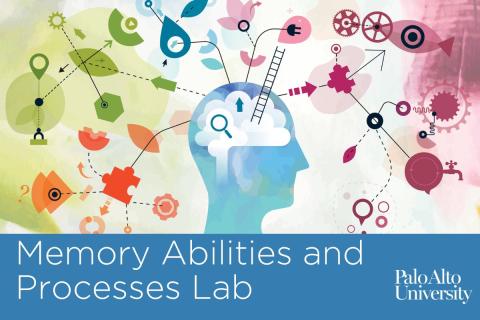
Memory Abilities and Processes Lab
The Memory Abilities and Processes Lab explores the fundamental mechanisms of human memory, in a broad range of contexts, with the goal of better understanding how memories are made, maintained or changed, and retrieved. We also are interested in developing memory process-based applications to improve the efficacy of psychological interventions, and to support the memory skills of healthy older adults and individuals with neuropsychological challenges.

Some of the topics we investigate:
Anxiety and Memory
Recent work we have done has indicated gender differences in the effects of trait anxiety on aspects of associative memory. We are now proceeding to investigate how trait anxiety and anxiety disorders affect associative memory and autobiographical recall, in healthy aging, and across identities and cultural orientations.
Memory Reconsolidation and Interference
In a series of behavioral studies, our research has examined the boundary conditions for interfering with the reconsolidation of episodic memory, and the interaction between reconsolidation interference and memory suppression, with the goal of the possible application of reconsolidation interference to treatment of phobias and maladaptive behaviors. Our work points to the challenges of engendering reconsolidation interference with purely behavioral interventions (Levy et al., 2018; Batashvili et al., 2022), and we are interested in determining whether new reconsolidation modification techniques with clinical promise might be developed.
Modulating Memory Consolidation
Further to our demonstration that EEG neurofeedback to upregulate theta power can strengthen procedural learning and episodic memory (Rozengurt et al., 2016; 2017), and enhance early consolidation of spatial memory by neurofeedback (Shtoots et al., 2020), we are currently using transcranial alternating current stimulation (tACS) and audio-visual entrainment to upregulate brain theta band activity, thereby improving subsequent episodic and semantic memory. We are interested in exploring the application of this finding as adjuvant treatment in psychotherapeutic interventions, as well as for optimization of education and professional training.
Students are invited to suggest research projects in areas of personal interest related to the interface between cognition, emotion, and mental health.
How to Apply:
Interested students are invited to submit to Dr. Daniel Levy (dlevy2@paloaltou.edu):
(1) current PAU unofficial transcript
(2) CV
(3) ~300-word essay describing your past research/clinical experience, unique qualifications (e.g., statistical skills, software proficiency, technical skills), and your specialization/career interests.
Based on your application materials, Dr. Levy will interview a select group of applicants to explore working together on projects of mutual interest.

